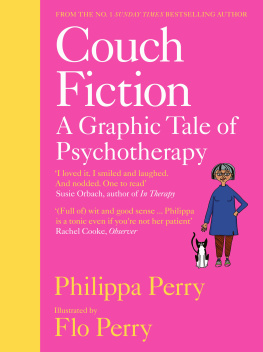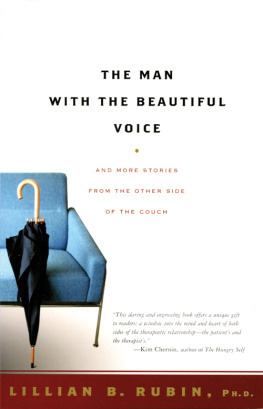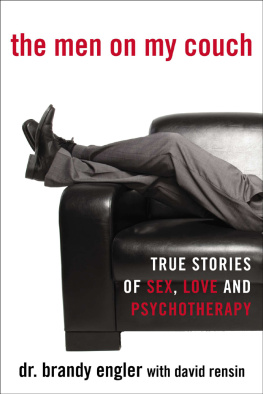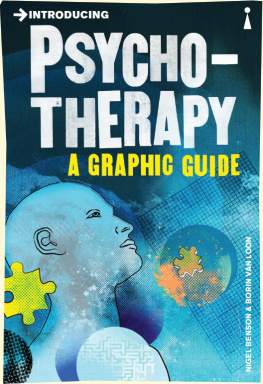About the Authors
Philippa Perry has been a psychotherapist for the past twenty years. She is an agony aunt for Red magazine, a freelance writer and a TV and radio presenter. She has written two other books: How to Stay Sane and The Book You Wish Your Parents Had Read. She lives in London with her husband the artist Grayson Perry, and they have a grown-up daughter, Flo.
Flo Perry is a writer and illustrator, former BuzzFeed editor and expert on making illustrations go viral. She was born and raised in the wilds of North London and still lives there with two lovely homosexual housemates, her girlfriend and a terrible cat. Her first book How to Have Feminist Sex was published in 2019.
Thanks
Thank you to all my clients and supervisees, as well as to all the participants of all the training and continual professional development groups I have belonged to over the years.
Philippa Perry
Thank you to my mum for getting me this sweet job.
Flo Perry
Couch Fiction
This is either because they have worked through their own narcissism issues or they are inherently unstylish, or both.
Funtastic! How therapy works with all the fun of a cartoon
Oliver James
Clinical Psychologist, Writer and Broadcaster
I loved it. I smiled and laughed. And nodded. One to read, for sure
Professor Susie Orbach
Psychotherapist and Writer
Philippa Perry has succeeded brilliantly in demystifying the complexities of the psychotherapeutic encounter
Professor Brett Kahr
Senior Clinical Research Fellow in Psychotherapy
and Mental Health at the Centre for Child Mental
Health, London, and Honorary Visiting Professor at
Roehampton University, UK
An enchanting book. For something so playful and light-hearted, it packs quite a punch. The drawings are perfectly wedded to the content
Doris Brothers, PhD
Co-founder and Training and Supervising Analyst
at the Training and Research Institute for Self
Psychology (TRISP), New York
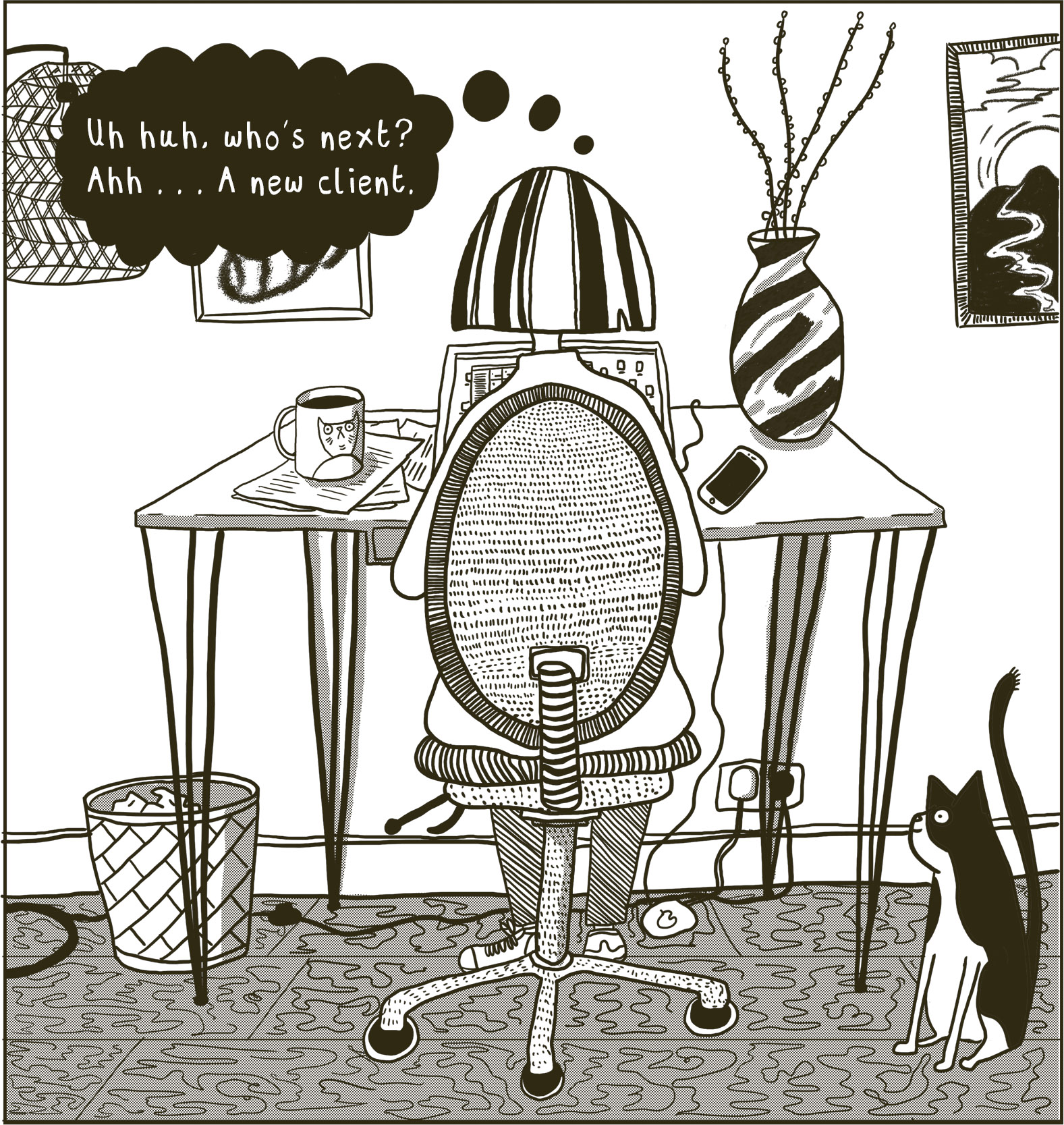
Uh huh, whos next?
Ahh A new client.
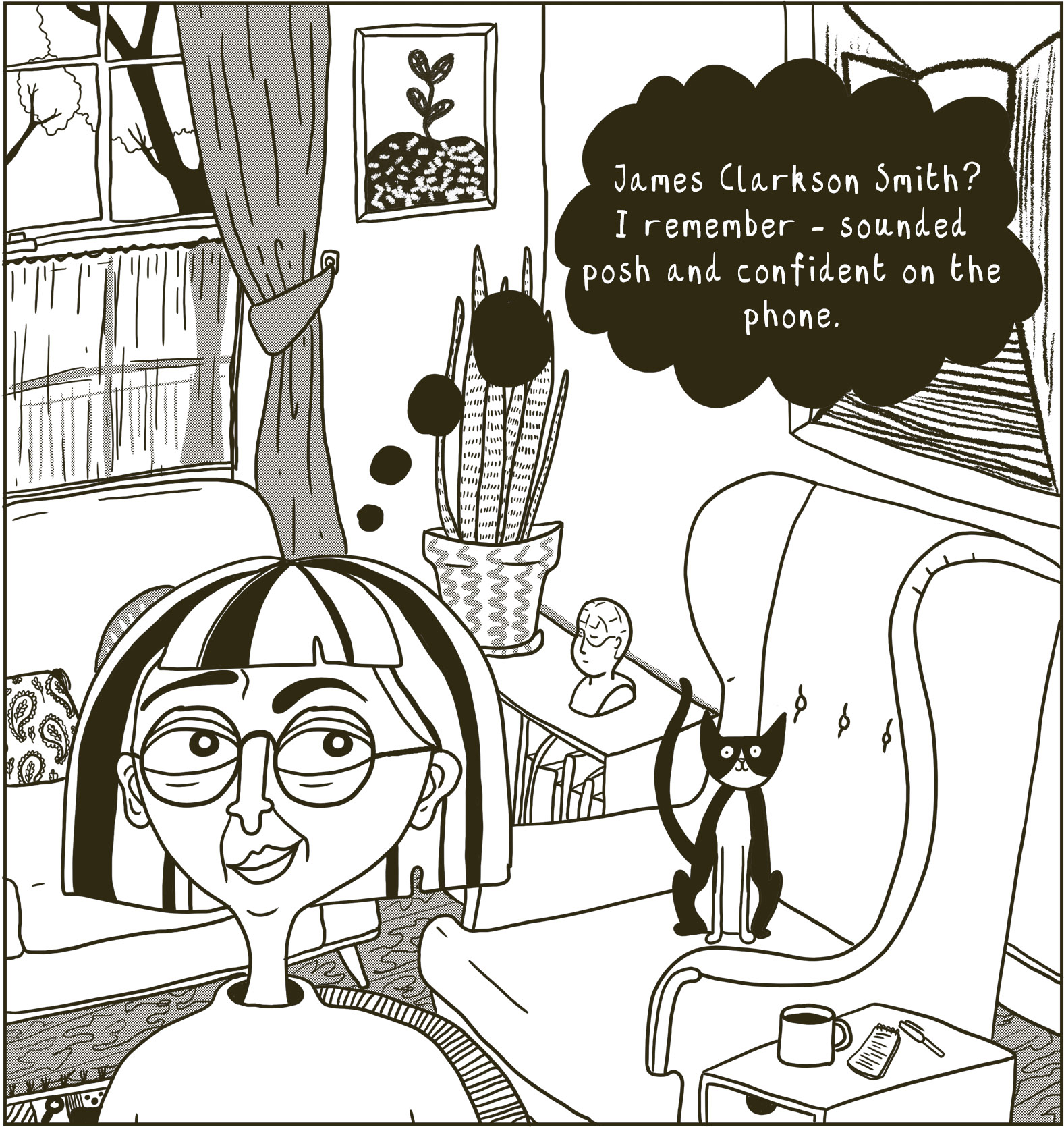
James Clarkson Smith?
I remember sounded
posh and confident on the phone.
Some schools of psychotherapy suggest that prior to a session, a therapist should empty themselves of preconceptions in order to maintain the openness of mind necessary to be aware of the nuances of the encounter. The psychoanalyst Wilfred Bion said that the therapist must prioritise perception and attention over memory and knowledge as the practitioners most basic working orientation. This position is almost always adhered to by the most experienced therapists (occasionally due to dementia rather than a rigid adherence to theory). The therapist in this story is not rigidly adhering to this theory. She is not a perfect therapist and there is no such thing.
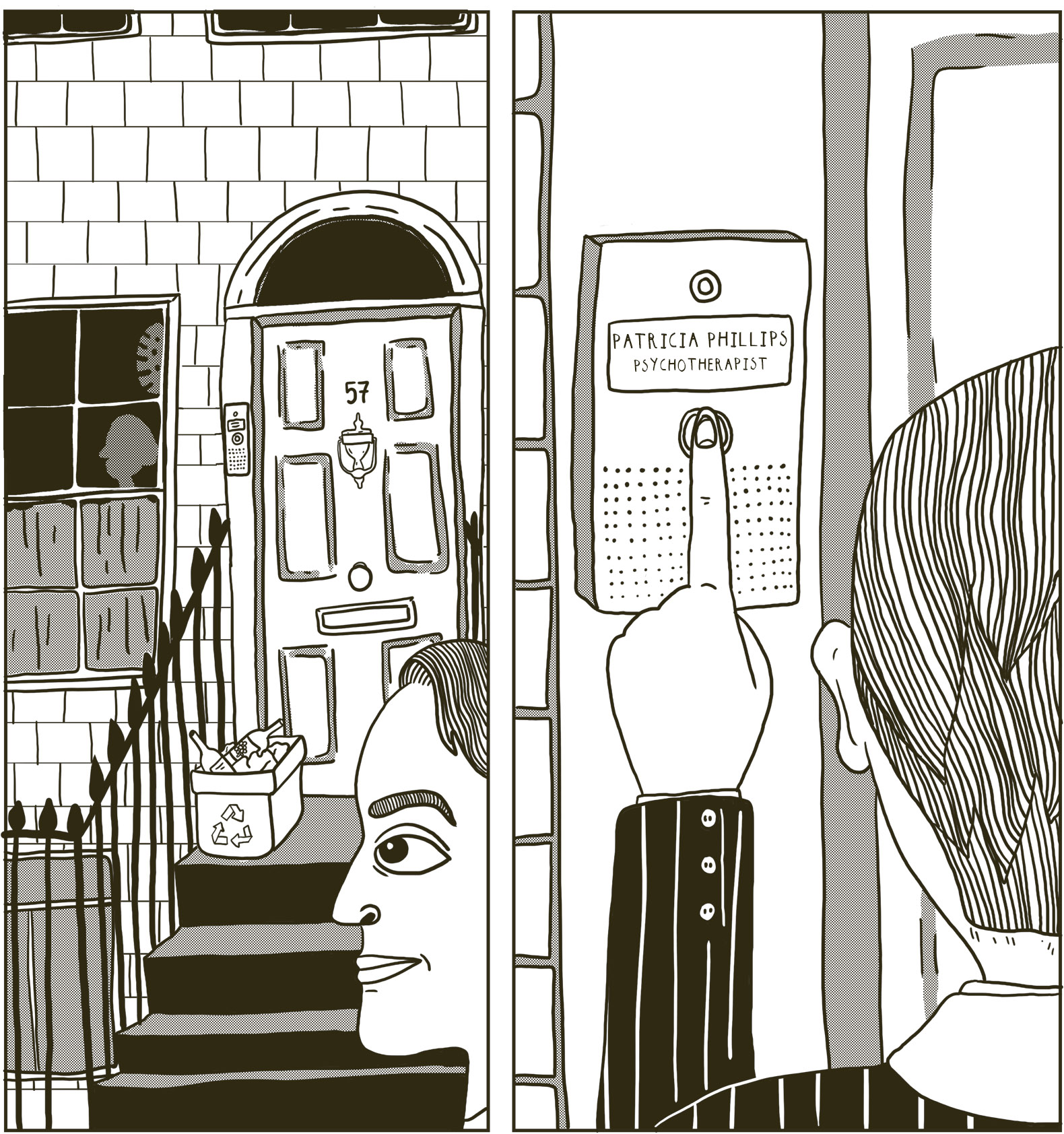
PATRICIA PHILLIPS
PSYCHOTHERAPIST
I wonder how much research has been done on the impact of recycling bins and their contents on the doorsteps of therapists premises? I would be especially interested to know of their impact on the first-time client.
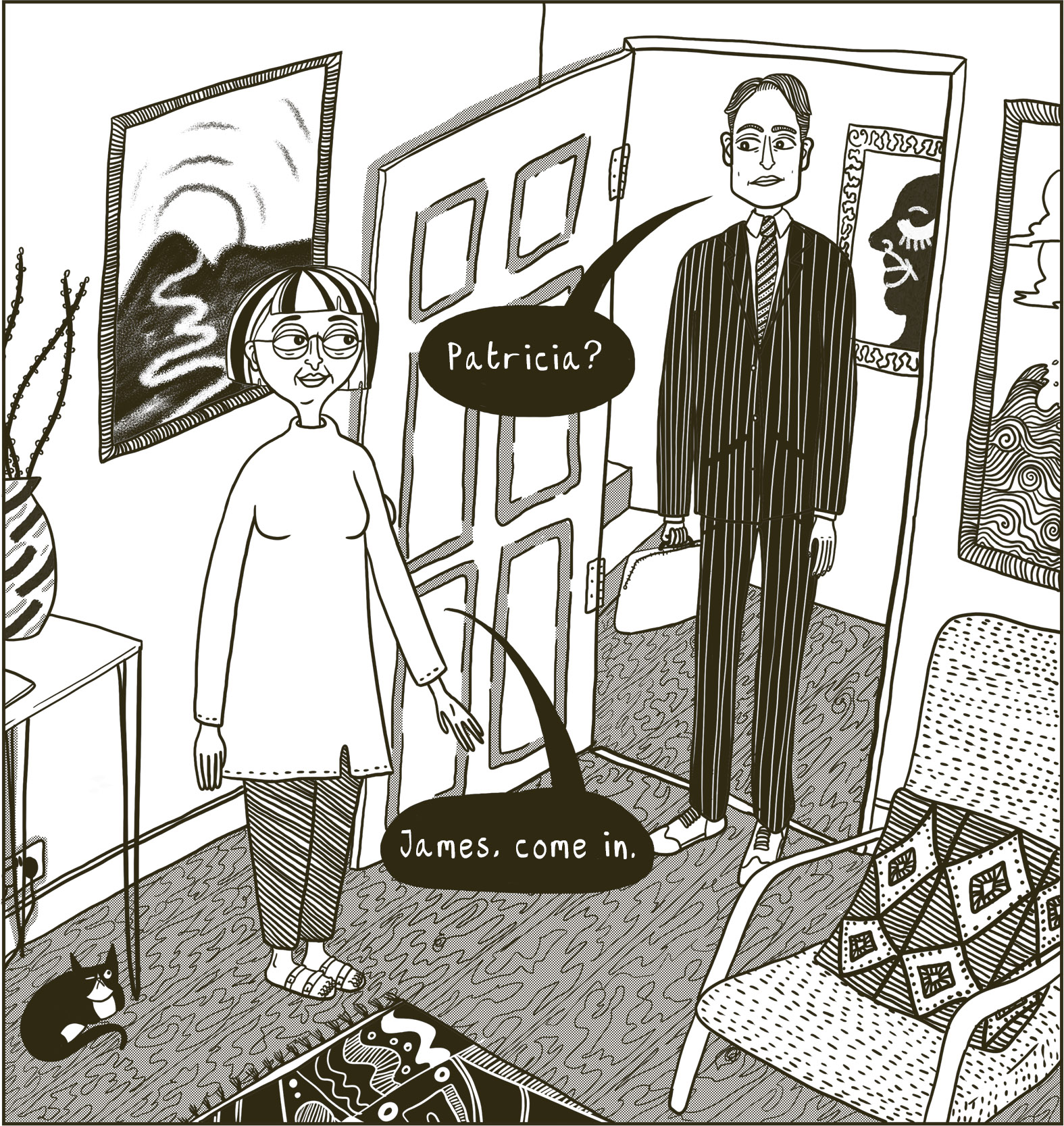
Patricia?
James, come in.
Many psychotherapists do not worry about the impression that their appearance makes on their clients; some have a habit of wearing open-toed orthopaedic sandals whatever the weather. Footwear can give an idea of whether a therapist is working from home or renting a room slippers or open-toed sandals in winter are a sure sign they are home-based.
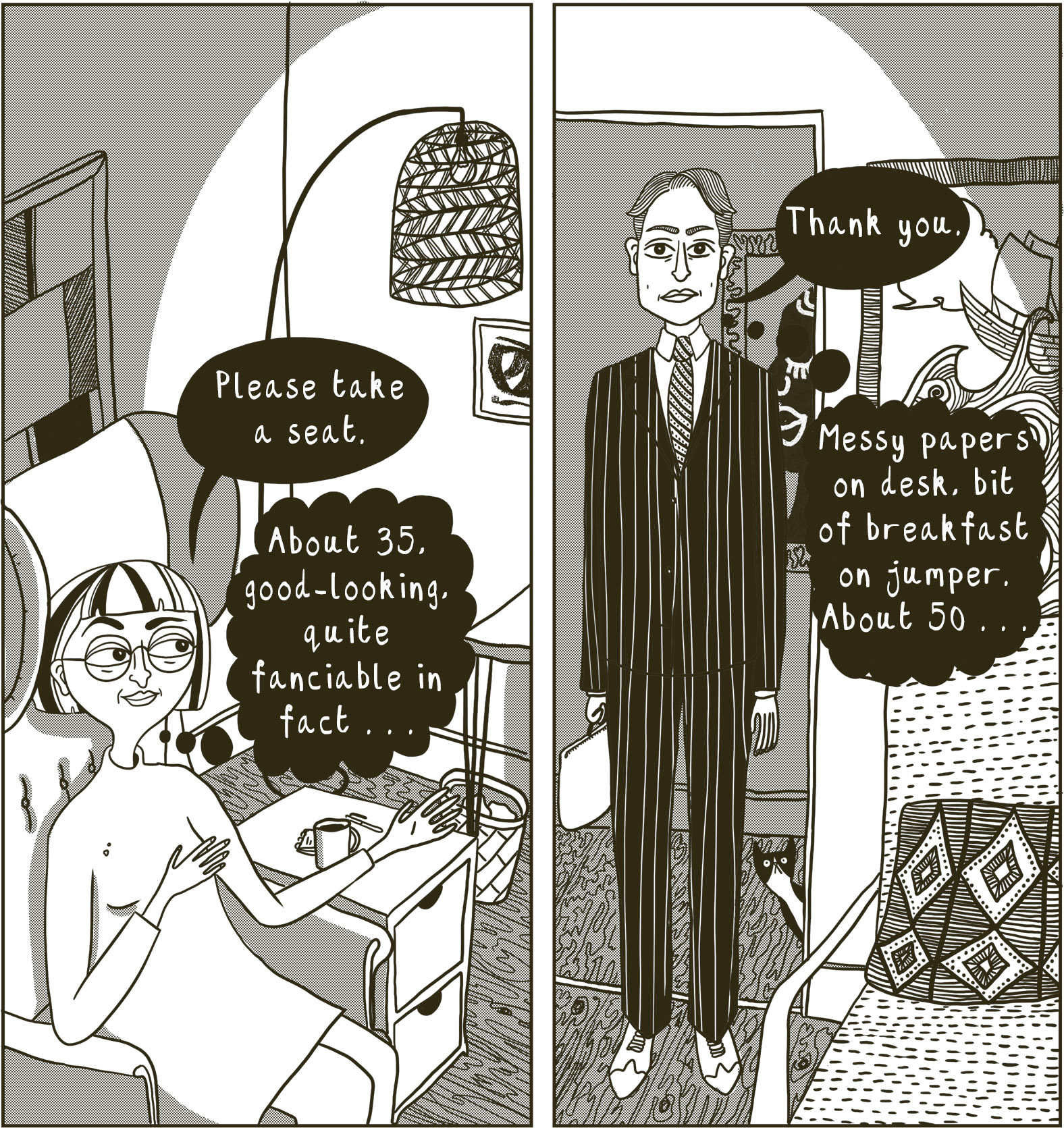
Messy papers on desk, bit of breakfast on jumper. About 50
About 35, good-looking, quite
fanciable in fact
Thank you.
Please take a seat.
We can never assume that the absolute truth in and of another person can ever be completely known. It is, however, important in psychotherapy to strive for that truth. Whether Pat clocking that she finds James attractive can be seen as striving for absolute truth is debatable.
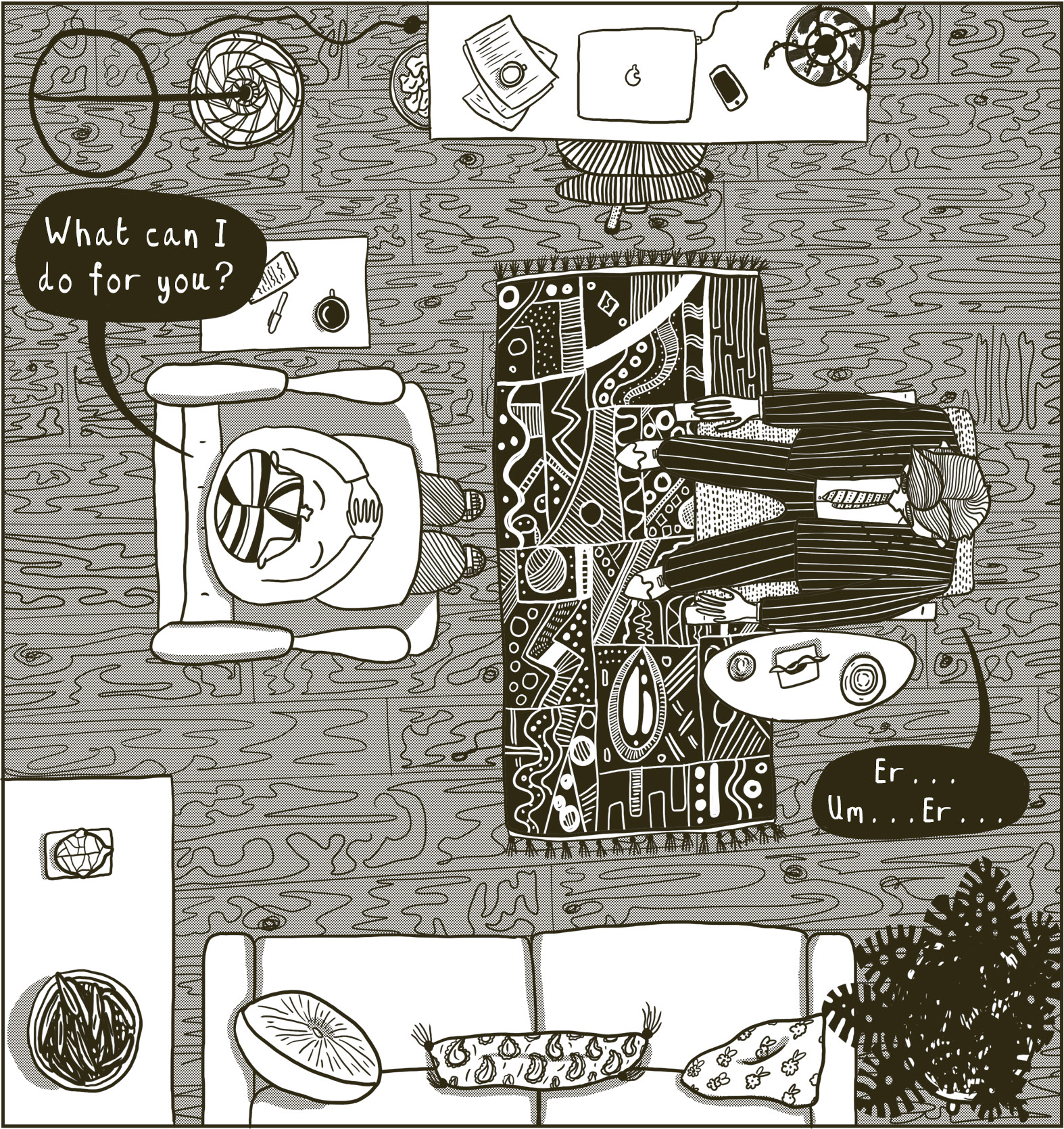
What can I
do for you?
Er Um Er
In the past, unlike Pat, many therapists didnt ask questions in order to be a blank screen onto which the client then projects. Projection is when instead of having pure contact with another, we project a part of ourselves onto the other person and relate to our own projected part, rather than, or as well as, to the person before us. It is now recognised that a practitioner who says nothing is anything but blank and, however talkative or silent she is, the client will still react to her as she is in the present (with her funny sandals and her recycling).
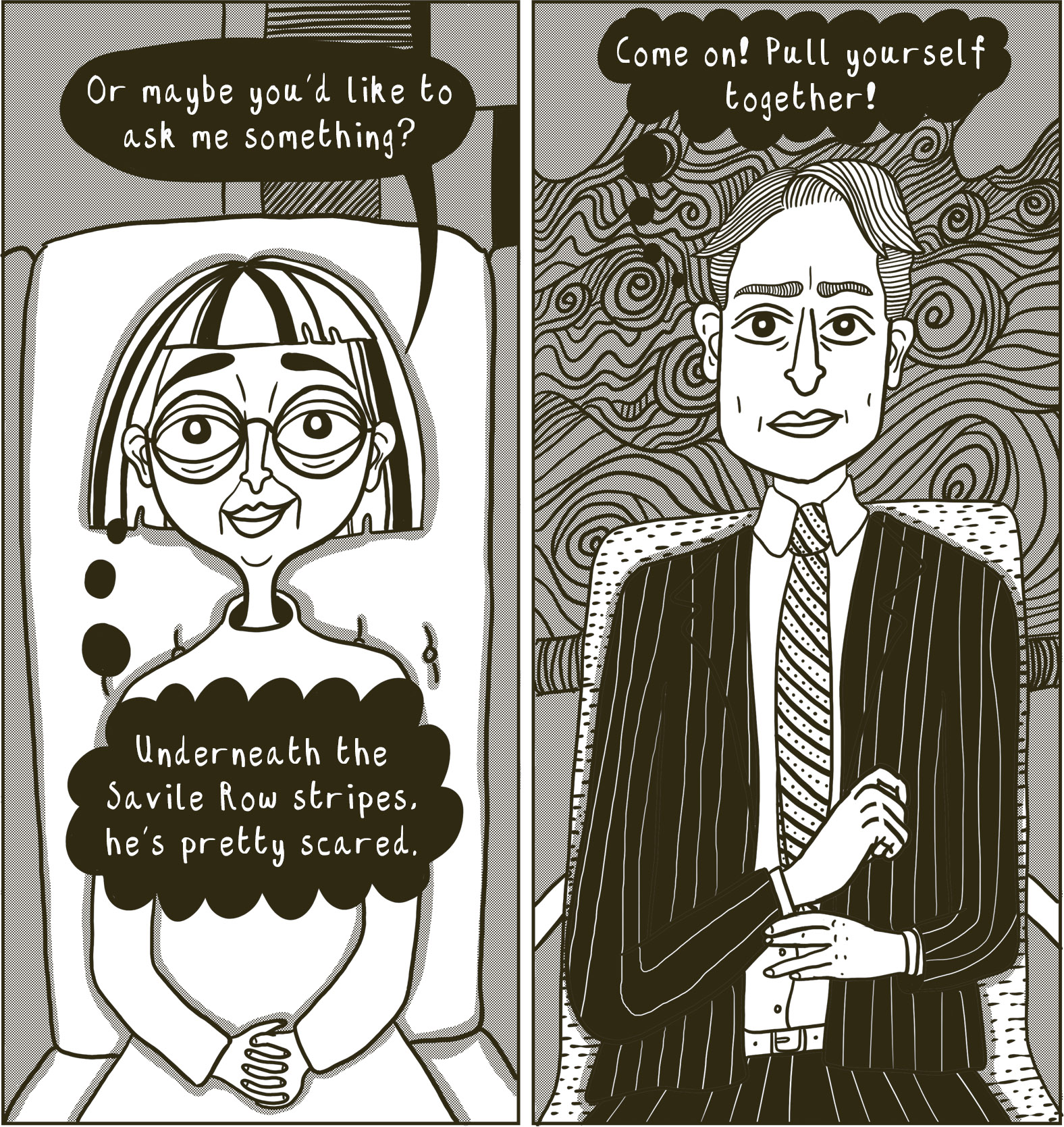
Come on! Pull yourself
together!
Or maybe youd like to ask me something?
Underneath the Savile Row stripes, hes pretty scared.
Nor will failing to remain silent prevent projection or transference. Transference is when we make subconscious assumptions about the person before us in the present, based on our experience of people we have known in the past. For the record, countertransference is what therapists call the feelings that the client causes to emerge in the therapist. It is desirable that therapists recognise their countertransference so as not to complicate an already complicated matter.
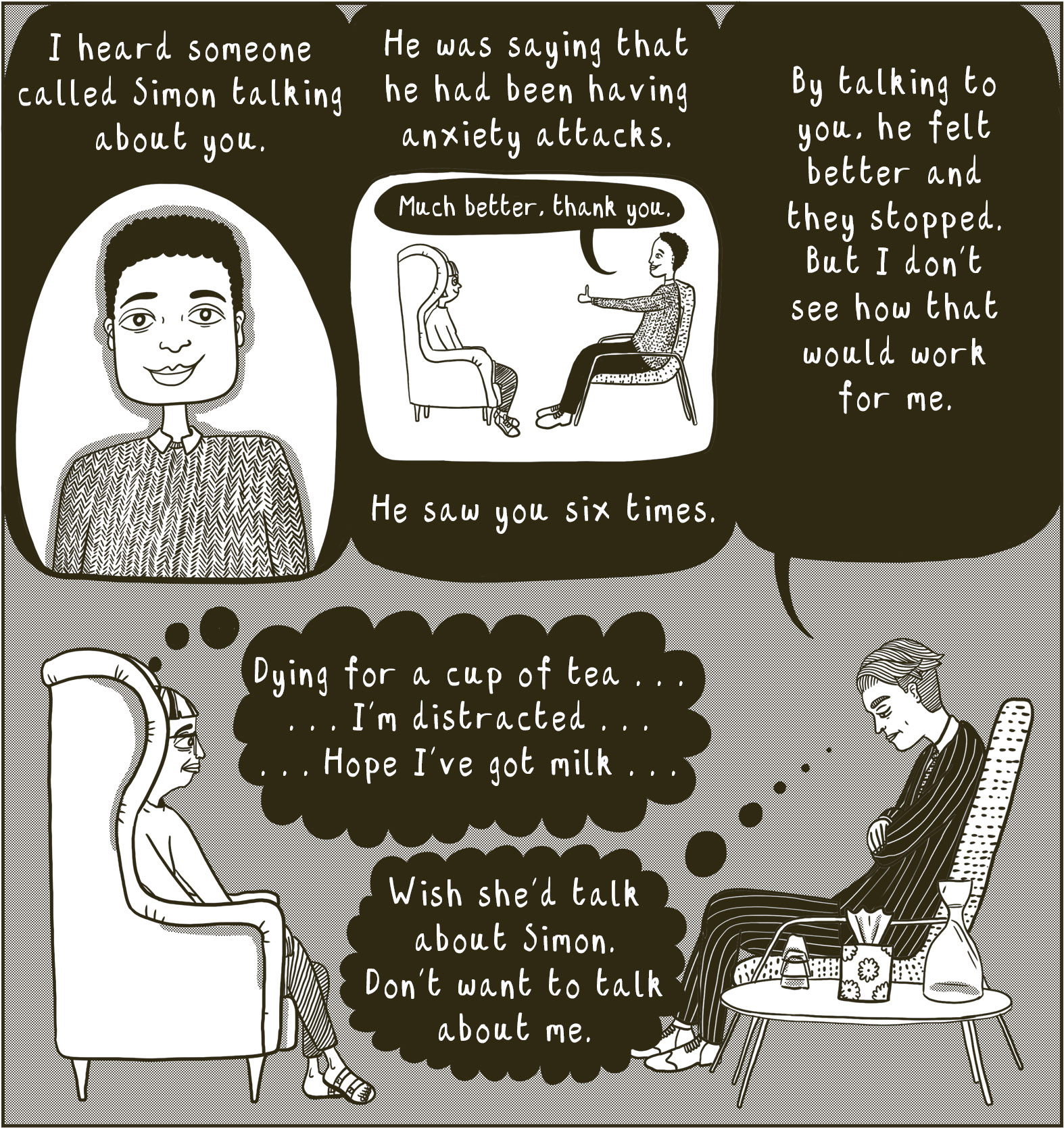
He was saying that he had been having anxiety attacks.
I heard someone called Simon talking about you.
By talking to you, he felt better and they stopped. But I dont see how that would work for me.
Much better, thank you.
He saw you six times.
Dying for a cup of tea
Im distracted
Hope Ive got milk
Wish shed talk about Simon.
Dont want to talk about me.
By talking about Simon, James is avoiding the subject it would better serve him to talk about himself. Pat appears to be experiencing a countertransferential parallel process to James, as she too is finding it hard staying with the business in hand. Possibly, due to her distraction, Pat has missed the clue that James heard Simon talking about her, rather than James reporting having a conversation he had with Simon. It is as though he has taken the information from Simon by stealth. She missed this. It does not matter. If it is important that a behavioural pattern is addressed, the client will invariably either demonstrate it again, or bring it up later on.
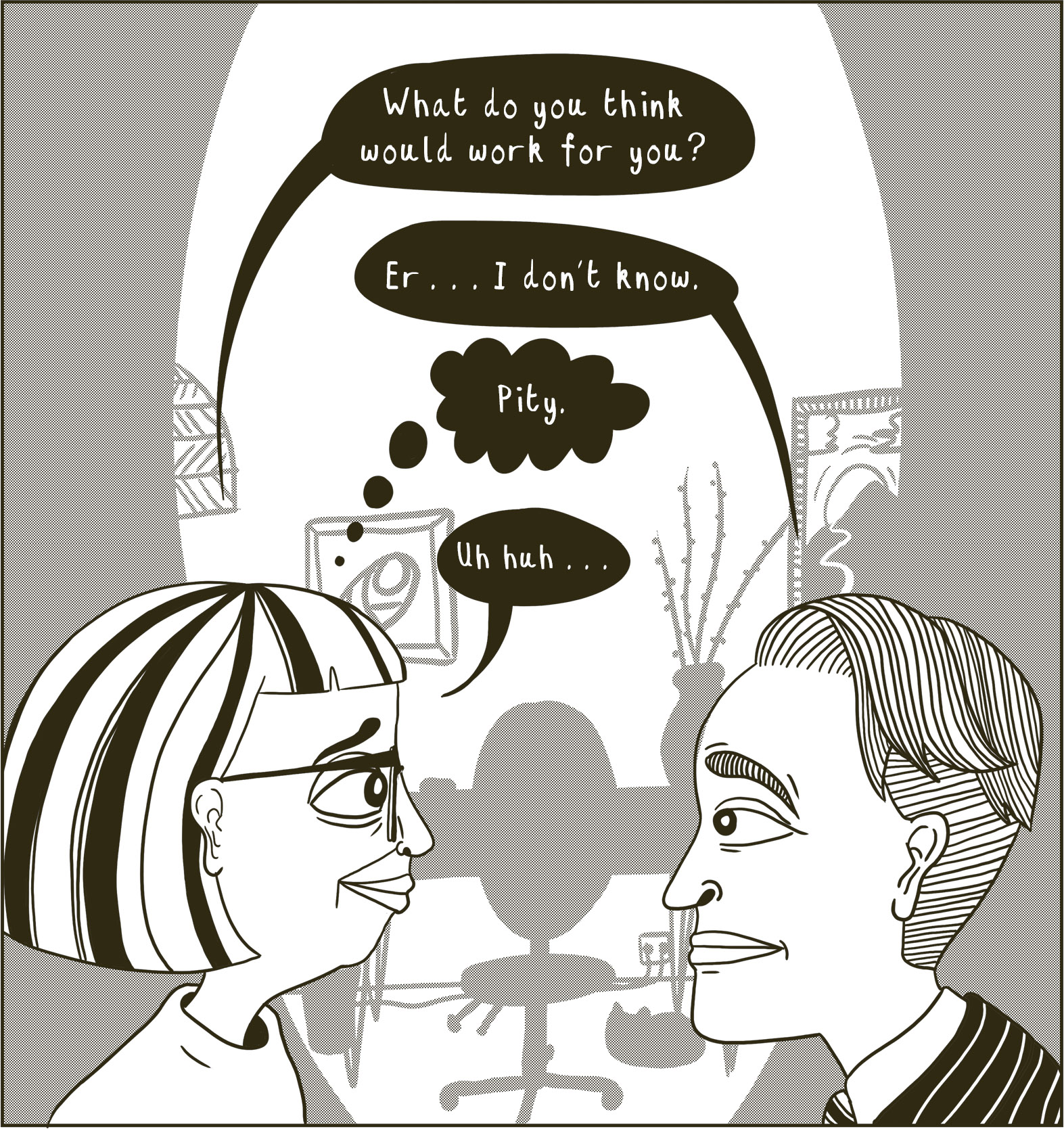
What do you think would work for you?
Er I dont know.
Pity.
Uh huh
Research has shown that clients are most likely to make positive changes in therapy when the therapist uses the clients own theory of change, or when the therapists own ideas about change coincide with the clients previously held psychic beliefs. This is why Pat asks James what would work for him.

